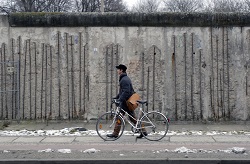Taking a social approach to better understand a complicated history
Although it is widely understood that the communist regimes of Central and Eastern Europe disintegrated starting in 1989, what isn’t widely understood – or perhaps even misunderstood – is the ‘why’. To shed light on what really happened, the RESOCEA project looked beyond the historic tradition of viewing the era through a comparative political lens in favour of trying to better understand the social dynamics and social change happening in Central and Eastern Europe during that volatile time. The project set out to revise the traditional view of regime and society in communist countries by recounting history through the prism of such unexplored social fields as the clash between science and ideology, industrial accidents, the migration process, international mobility, generational and culture clashes, and the contradiction between the drive for economic effectiveness and ideological bias. Researchers explored the relationship between the communist regime and society using an innovative methodology that focused on what they refer to as the ‘concept of the incident’ within the framework of status-events and the ‘Big Event’. ‘A key challenge - which turned out to also be a key factor to our success - was to channel and interpret the abundance of empirical material we had at our disposal to connect the individual stories and facts at the micro-level with macro social phenomena and explanations,’ explains RESOCEA principal investigator Professor Ivaylo Boyanov Znepolski. With Prof. Znepolski taking the lead, he was supported by four senior researchers from former communist countries. Each researcher took on a specific country, looking into the local aspects of the fall of the communist regimes. At the conclusion of their research, a comparative narrative linking all five case studies was published. Myth busters One of the key findings coming from the project was the debunking of several popular myths. For example, it has been long held that the collapse of communism in Central and Eastern Europe was unexpected, and that the people of the former Soviet-bloc countries viewed freedom as a gift. ‘What we found is conclusive proof that nothing about 1989 was ‘unexpected’ and, in fact, the opposite was true,’ says Znepolski. ‘When you view all five case studies together, it becomes clear that change is a continuous process, and that the so-called Big Event of 1989 itself was not a game-changer, but simply a way for history to identify, or give a name to, the change.’ Another surprising finding from the project was that, contrary to popular belief, the communist regimes of Central and Eastern Europe did not enforce complete control over society. Based on their in-depth analysis of day-to-day life under communism, RESOCEA researchers revealed the existence of a branched-out network of micro-power centres, each of which were able to successfully loosen various areas from the allegedly iron-clad grip of the communist regimes. The Achilles’ heel So if it wasn’t sudden change or resistance to total governmental control, what did cause the fall of these regimes? According to Znepolski, the communist system suffered one key anthropological defect: its failure to incentivise individuals to take the initiative and develop their creative talents. This was the push that started the dominoes falling. ‘This one factor caused consistent tensions between the individual and the system and, at the end of the day, resulted in the regime losing the support of its own initial powerbase - the people in whose name it had come to power by and who should have directly benefited from its reign,’ says Znepolski. Add to this building of nonconformist behaviour, the increasing popularity of unofficial publicity channels, and an array of change and social transformation happening across all parts of society, and what may have looked like nothing more than clouds on the horizon converged to form the perfect storm - taking down the communist regimes in its wake. For more information, please see: project website
Countries
Bulgaria



